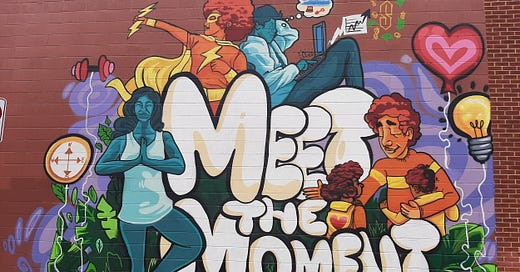On December 2, Kentucky’s governor Andy Beshear said his team is “rising above partisan politics to meet this moment.”
On December 4, White House budget director Shalanda Young wrote a letter to Congress asking for more money for Ukraine. She said, “There is no magical pot of funding available to meet this moment. We are out of money — and nearly out of time.”
On December 5, defeated Houston mayoral candidate Sheila Jackson Lee accused her opponent, John Whitmire, of not showing up to “meet the moment.”
Seems like The Moment™ has been busy lately.
The New York Times, for its part, published an opinion piece on November 21 expressing concern that the “Trump threat” is growing and calling on lawyers to “rise to meet this moment.”
To be fair, the Grey Lady seems to really love this hollow phrase, variously using it to qualify everything from leadership training, to baseball playing, to jazz music, to mushrooms.
Seriously. Mushrooms.
The origins of The Moment™ are hard to determine. It may have been popularized by the psychologist, Buddhist teacher, and author Sylvia Boorstein, who wrote in 2018 that she uses it as a mantra:
Here is a practice I have been working with for more than a decade. I recite, usually silently, these two sentences:
May I meet this moment fully.
May I meet it as a friend.These blessing phrases cultivate and sustain a mind of peace and goodwill. For me, they represent the promise of practice. “May I meet this moment fully” expresses my faith that an alert and balanced mind is a possibility for human beings. “May I meet it as a friend” reminds me that my mind’s natural benevolence is my best refuge.
The George Floyd Moment™
‘Meet the moment’ got trotted out a bit during the race riots of 2020. Then somehow — whether through the work of a high-powered consulting firm or marketing flunky or simply by accident — the phrase wormed its way into the brain of a Democrat speechwriter, who added them to Biden’s 2021 inaugural address. The word ‘moment’ appears six times in that speech and the idea of meeting the moment appears twice:
This is our historic moment of crisis and challenge, and unity is the path forward. And, we must meet this moment as the United States of America.
That day, the President asked the nation to meet the moment to preserve our union. Since then, we’ve been asked to meet the moment to flatten the curve, tackle climate change, address health threats, reimagine education, and reach biodiversity goals among countless other platitudes. Don’t believe it? Watch this:
What’s truly chilling about the phrase is not just how it seems to have come from nowhere and multiplied faster than a jackrabbit. It’s how anodyne and sterile the words are. Rather than calling for actual, concrete steps to tackle real and tangible problems, ‘meet the moment’ simply asks for presence.
You don’t have to do anything. Just be there. Meet the moment. Shake its hand. Be its friend.
It almost makes you wonder whether we’re missing something. Whether there’s a deeper — more ciphered — message embedded in ‘meet the moment’ that tells the inner circle something that those of us in the outer circle can’t quite understand. It’s like the spiritual successor to that well worn globalist phrase, Build Back Better.
Maybe we’re just getting too cynical. After all, people are introduced to moments every day of their life.
If anyone has thoughts on this word salad, we’d love to hear them.





These "proto-cliches" show up all the time.
Most speeches and news stories are written by underlings and interns with limited experience who are either afraid to actually use language in any meaningful way or haven't the authority to actually say anything meaningful. Some new turn of phrase comes along and they all latch onto it once it hits the rounds to fill the void of meaningless missives that make up most communications. Once it makes an appearance, it is deemed a safe filler that isn't going to ruffle any feathers and not stand out like a fart in church as some ill wrought metaphor that doesn't paint the intended picture when it goes over the intended audience's head when it isn't as illustrative as the author thought it was when they were trying cobble something together to meet their deadline.
I feel your pain. Sorry for your loss. Thank you for your service. Next level. Game changer. Outside the box. Paradigm shift. Safety first. They will crop up and make the rounds until they quickly lose their newly minted novelty. Since they actually do not convey any meaning, they have a limited shelf life before they become stale and hackneyed.
Back when journalism was a tradesman endeavor, things were written at a low reading level on purpose. Not because the readers didn't have the comprehension but for brevity and clarity. As it has become the domain of the "educated elite" the shift has brought with it the desire for the writers to illustrate their intellectual superiority by slipping in more esoteric vocabulary. The perfect example was when the word gravitas, made the rounds in the news cycle.
Couple this with the move in news going moving away from relaying information to spin, narrative building, and damage control, writers don't want to become the tall blade of grass and will simply parrot the pre-approved vocabulary so they don't get caught up in the grinder.